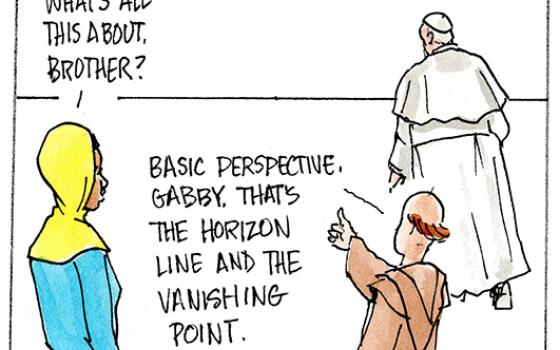The U.S. Supreme Court cleared the way Monday for a federal appeals court to take up a Christian college's challenge to the Affordable Care Act, reopening one of several lawsuits filed by religious and other groups who oppose elements of the law.
The court ordered the 4th U.S. Circuit Court of Appeals to hear the argument of Liberty University in Lynchburg, Va., that the health care law infringes on the Christian school's religious freedom. The court had rejected an earlier challenge by the university, made prior to the Supreme Court's June ruling upholding the health care law. The university appealed again, asking for its challenge to be considered in light of the June Supreme Court ruling.
The order came within weeks of separate rulings by federal courts in Washington and Oklahoma that addressed challenges to a Department of Health and Human Services mandate under the Affordable Care Act, which requires employers to include coverage for contraceptives in employee health insurance.
On Nov. 16, a Washington-based federal judge granted a temporary injunction against enforcement of the contraceptive mandate in a suit brought by an Illinois-based Christian publisher.
U.S. District Judge Reggie Walton ruled that Tyndale House Publishers, which produces Bibles and various Christian publications, did not have to comply with the new mandate while the group's lawsuit against it moves forward. The mandate "affirmatively compels" the company to violate its religious beliefs, he said.
Matthew Bowman of Alliance Defending Freedom, which is representing the Carol Springs, Ill., company, said in a statement that the judge's ruling was the right one and that Bible publishers "should be free to do business according to the book that they publish."
Tyndale objects to the HHS requirement that most religious employers provide free coverage of contraceptives, sterilization and some abortion-inducing drugs free, saying it violates the company's moral convictions.
In another lawsuit against the mandate, a federal judge in Oklahoma City denied a request Nov. 20 for an injunction against the mandate by the Christian-owned business Hobby Lobby, saying the arts-and-crafts stores must cover emergency contraceptives in their insurance policies even though the company argued that some are abortion-inducing drugs.
A day later lawyers for Hobby Lobby appealed the decision to the U.S. Court of Appeals for the 10th Circuit, asking for "emergency relief" from fines of more than $1 million a day the company says it will face if it doesn't comply with mandate.
The family-owned company said in a statement it has no moral objection to "the use of preventive contraceptives" and will continue to cover those for employees.
The HHS mandate has a narrow exemption that applies only to those religious institutions that seek to inculcate their religious values and primarily employ and serve people of their own faith. The mandate does not include a conscience clause for employers who object to such coverage on moral grounds.
Tyndale House, which has 260 employees, does not meet the religious exemption even though it publishes Bibles and other Christian materials. It is primarily owned by the nonprofit Tyndale House Foundation, which provides grants to help meet the physical and spiritual needs of people around the world.
In his ruling, Walton, of the District Court for the District of Columbia, wrote that the contraceptive mandate "affirmatively compels the plaintiffs to violate their religious beliefs in order to comply with the law and avoid the sanctions that would be imposed for their noncompliance."
The judge acknowledged that the government has broad, compelling interests in promoting public health and ensuring that women have equal access to health care, but he said the question "is whether the government has shown that the application of the contraceptive coverage mandate to the plaintiffs furthers those compelling interests."
He also ordered the parties to appear at an undetermined date for arguments on whether to make the injunction permanent.
Alliance Defending Freedom, formerly the Alliance Defense Fund, is a Christian-based organization based in Scottsdale, Ariz., that provides legal defense against attacks on religious freedom. The group represented Hercules Industries in Colorado, a Catholic-owned company that provides heating, ventilation and air-conditioning. In July, Hercules Industries was granted a temporary injunction from the HHS contraceptive mandate by a federal judge.
In the Hobby Lobby suit, Judge Joe Heaton of the U.S. District Court for the Western District of Oklahoma, rejected both First Amendment and Religious Freedom Restoration Act claims by the store owners, saying that "secular, for-profit corporations do not have free exercise rights."
Hobby Lobby, based in Oklahoma City, has more than 500 retail stores in 41 states. Its business practices include being closed on Sundays and hiring company chaplains to minister to employees.
"We have always operated our company in a manner consistent with biblical principles, including integrity and service to others," said David Green, an evangelical Christian who is founder and CEO of Hobby Lobby. "We simply cannot abandon our religious beliefs to comply with this mandate."
Hobby Lobby is the largest company to file suit against the HHS mandate.
About 50 Catholic dioceses, universities and church entities throughout the U.S. have filed lawsuits against the mandate.
Oral arguments in the suit brought by the Benedictine-run Belmont Abbey College in Charlotte, N.C., are scheduled to be heard Dec. 14 by the U.S. Court of Appeals for the District of Columbia.
The order by the Supreme Court Monday is in a case challenging the Affordable Care Act's requirement that most individuals obtain health insurance or pay a penalty. The case also challenges a provision requiring most employers to provide health insurance to their staff.


